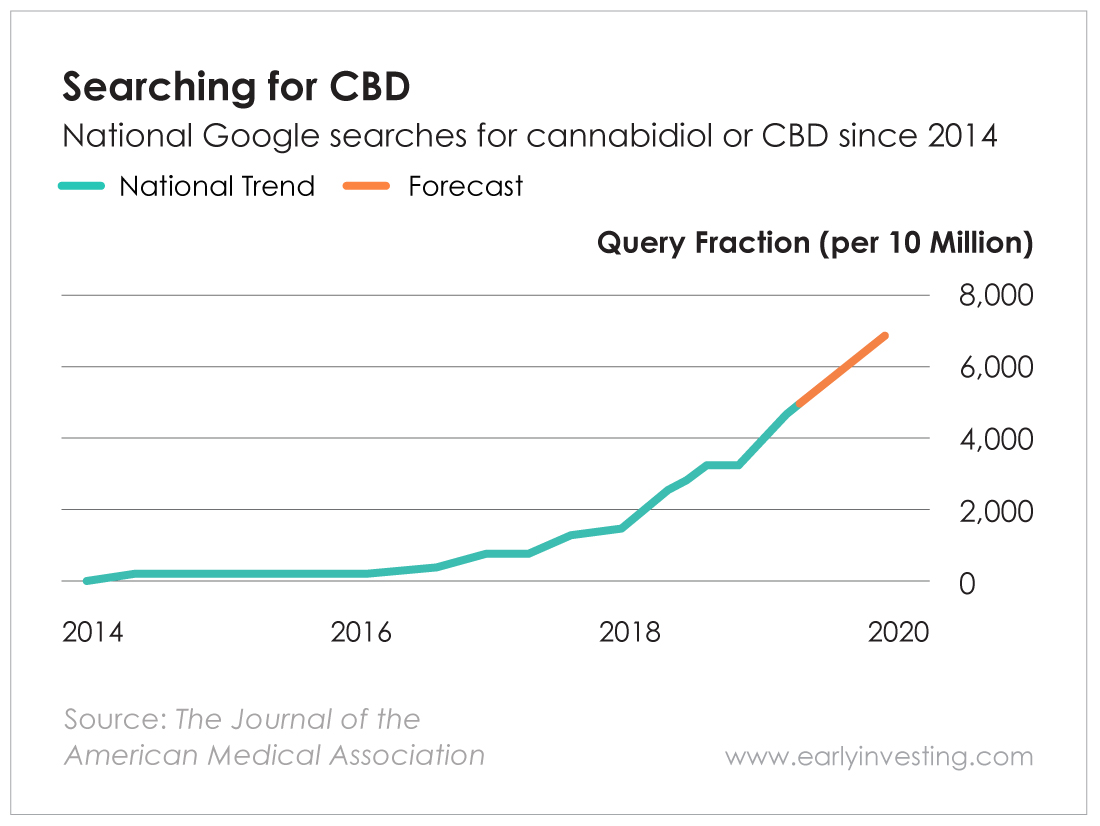
Americans are now Googling “cannabidiol” and “CBD” more than “exercise” and “veganism.”
The data comes from a paper published in the Journal of the American Medical Association. Researchers discovered searches for CBD and cannabidiol were flat until 2014. Then they spiked and have grown ever since.
The paper found cannabidiol and CBD searches increased 126% from 2016 to 2017 and 160% from 2017 to 2018. They’re expected to rise by 117% this year.
The increased search activity spanned all states, though searches in 2019 were higher in states that had legalized recreational marijuana.
Researchers compared CBD searches with searches for several health topics in an effort to create comparison points. And they found people are Googling CBD more than exercise, veganism, acupuncture and apple cider vinegar. And almost as much as yoga and electronic cigarettes.
This is more evidence that cannabis is getting people’s attention – especially medical cannabis. Researchers wrote:
The findings of this longitudinal cross-sectional study indicate that interest in CBD across the United States has increased considerably and is accelerating. While our study is limited in that Google searches may reflect interest in CBD rather than interest in use, search trends are associated with many health-related behaviors, including the rise of electronic cigarettes, years ahead of traditional data. Thus, our findings suggest that investigation into CBD should become a public health priority to catch up with the public’s interest.
The researchers outlined a four-step process to investigate CBD: study who uses CBD and for what purposes, evaluate the effects of CBD, develop product safety standards, and standardize marketing practices for those products.
But to make that happen, the government needs to loosen restrictions on marijuana research. Because right now, the Drug Enforcement Administration classifies marijuana as a Schedule I drug, which means it has no accepted medical use and a high potential for abuse. And that makes it extremely difficult for anyone to study it.
Fortunately, as the News Fix reported over the weekend, the government might finally be getting around to addressing this problem. Bureaucracy moves slowly, but it’s a good sign that policymakers are starting to have the conversation.
Because at the end of the day, cannabis is an incredibly powerful form of medicine. There are more than 200 million medical marijuana patients across the country who benefit from it and thousands more who could benefit, but don’t have access to it.
As more people share their stories about medical cannabis, national interest in cannabis and CBD will continue to grow. More people will look it up, ask questions, do their own research and seek out cannabis products.
The cannabis industry is set to experience viral growth… one Google search at a time.